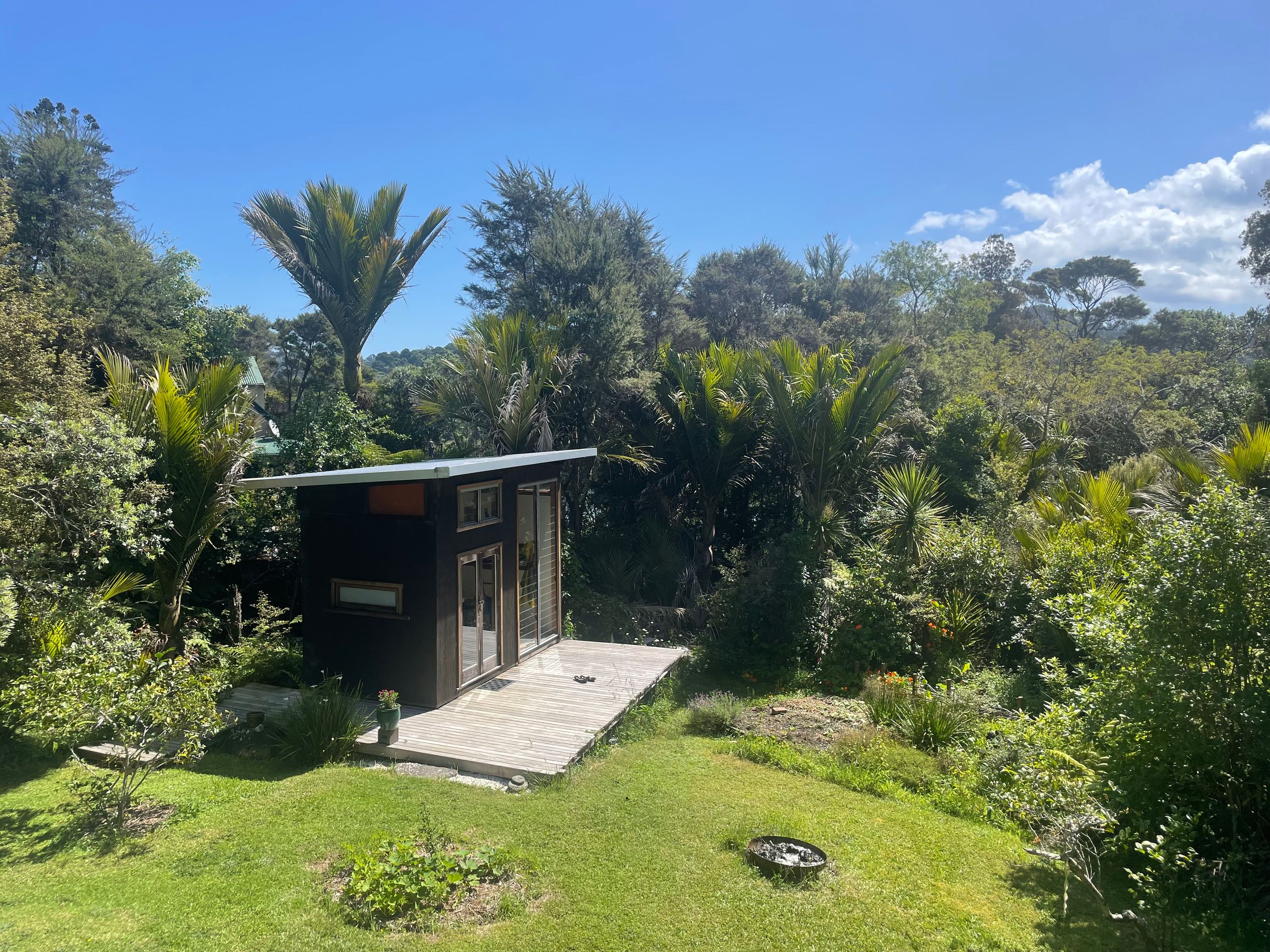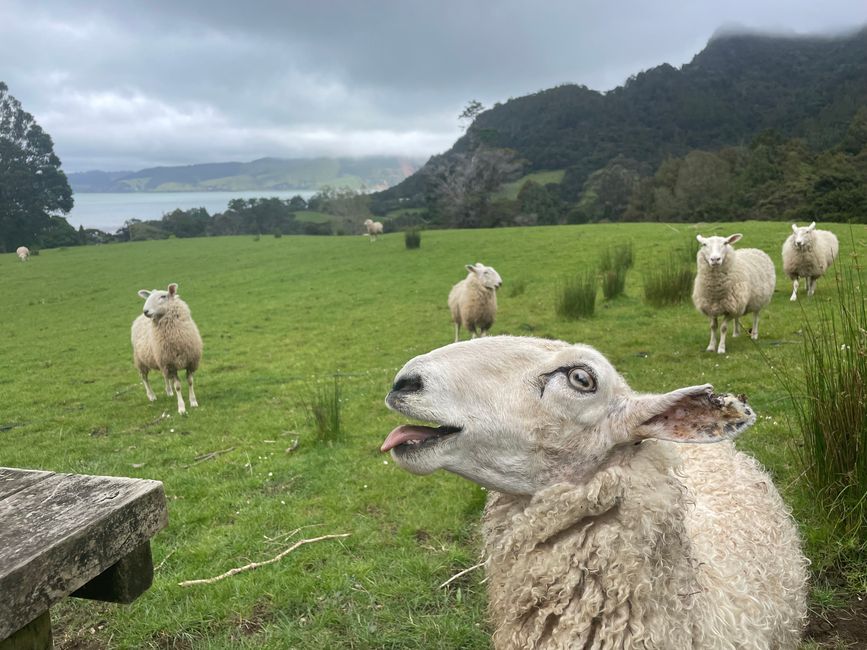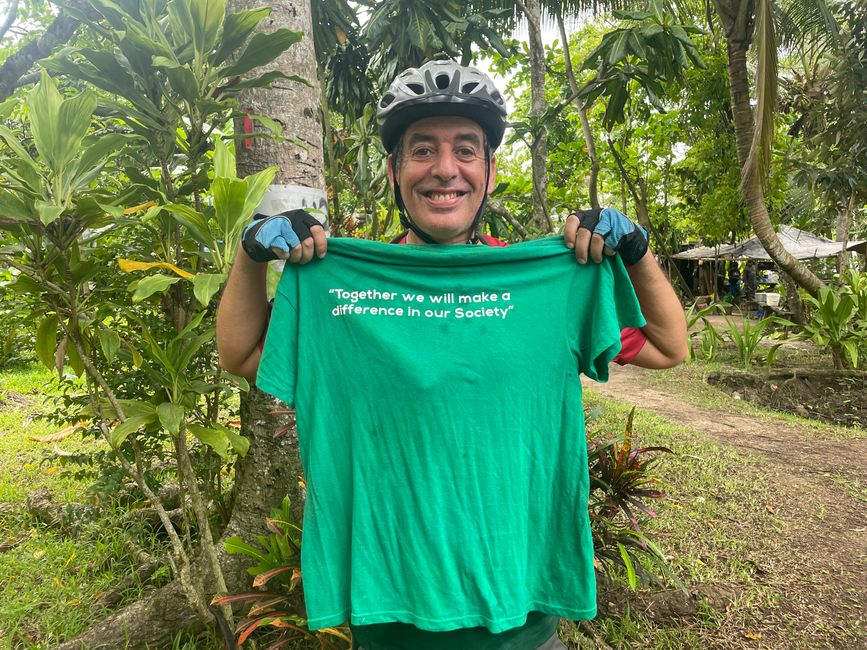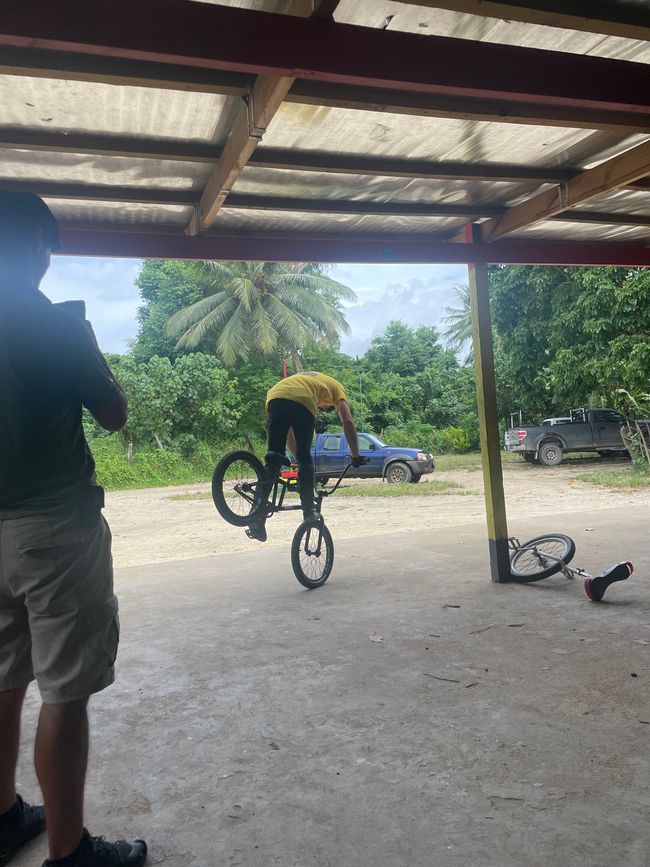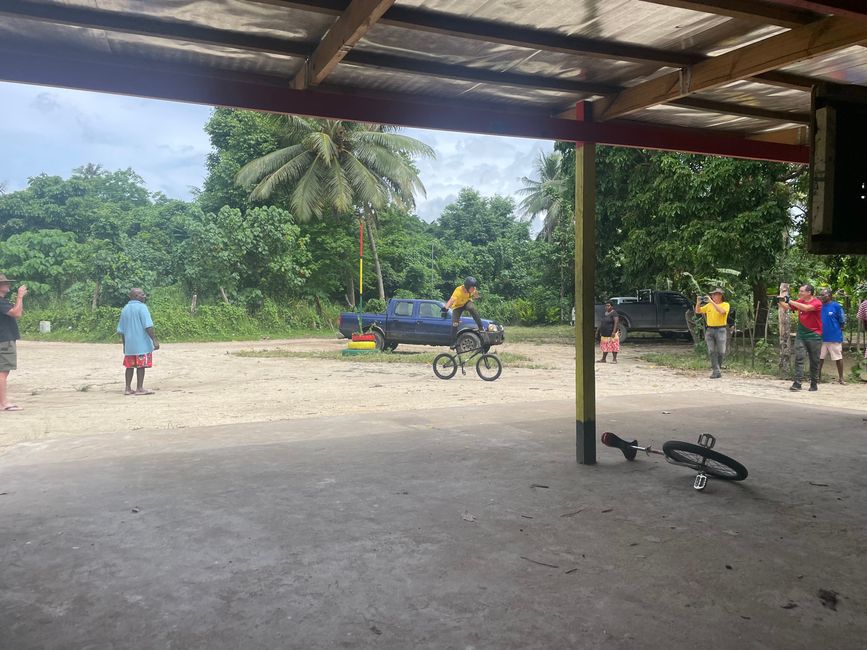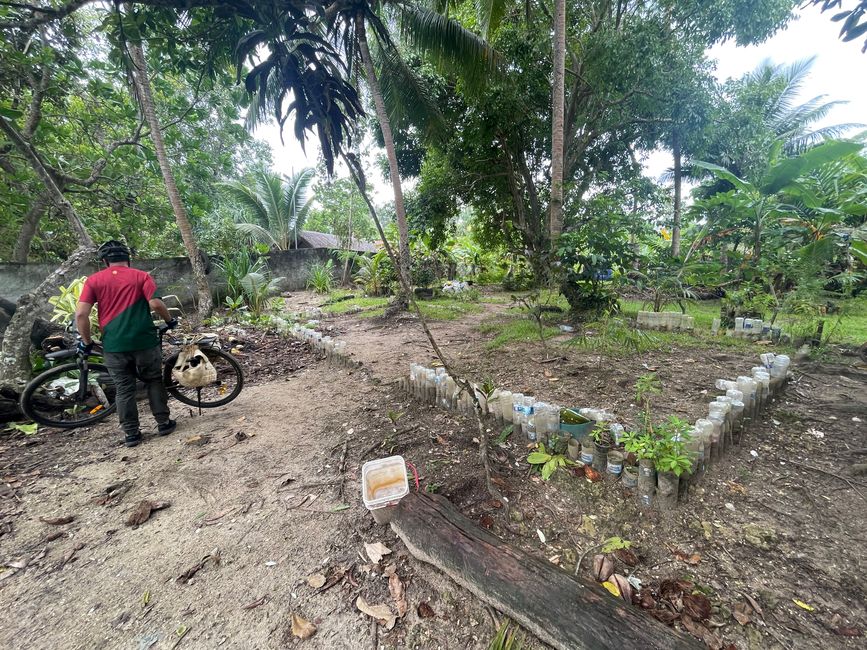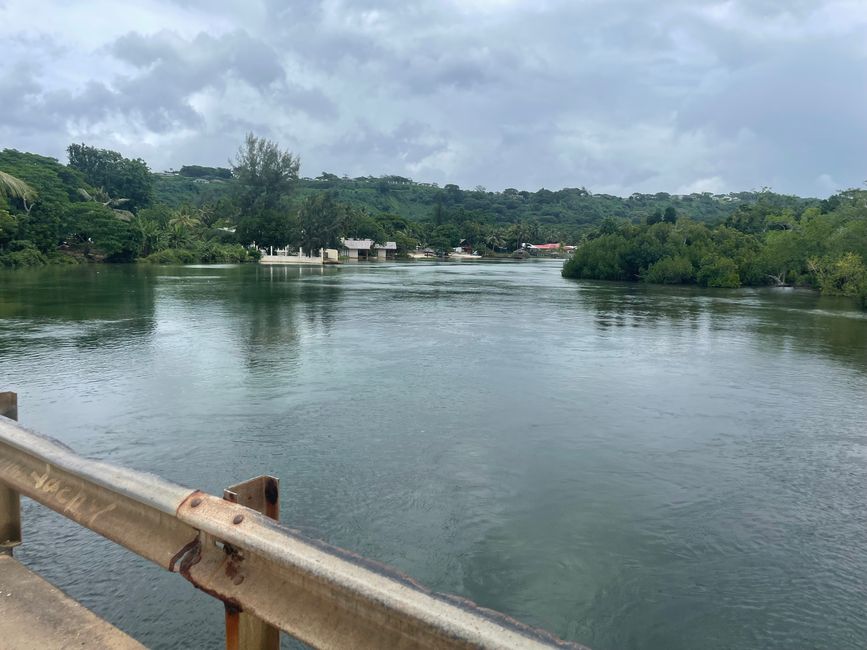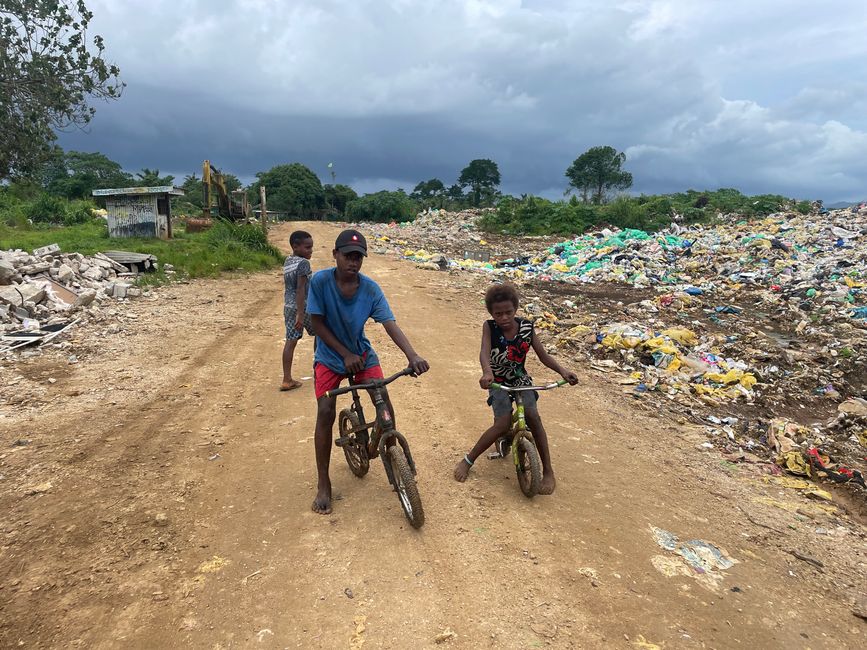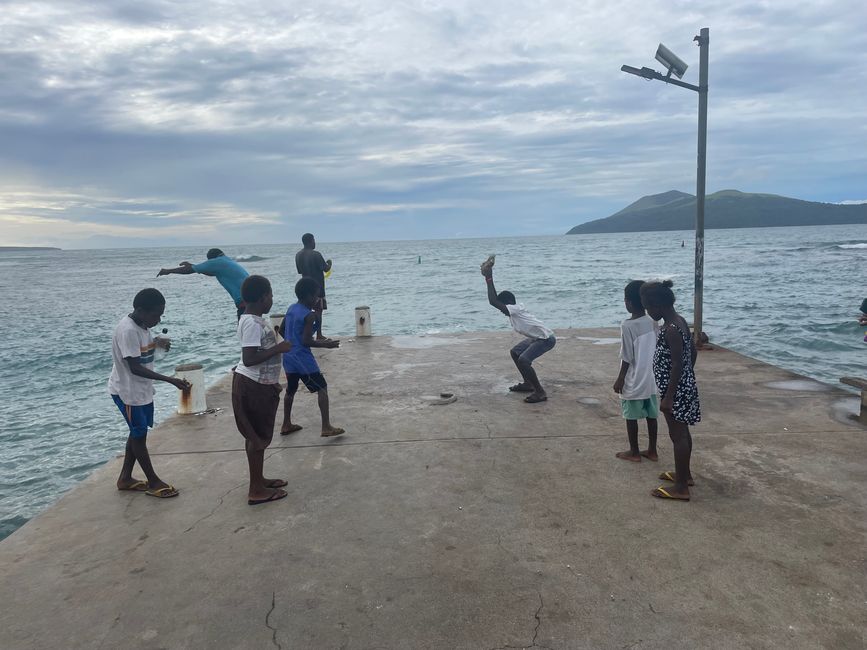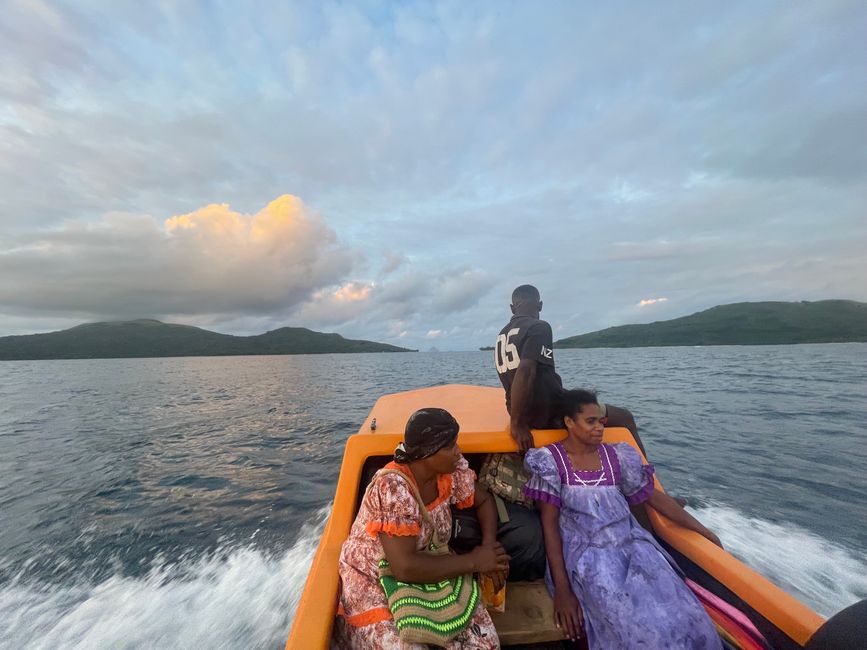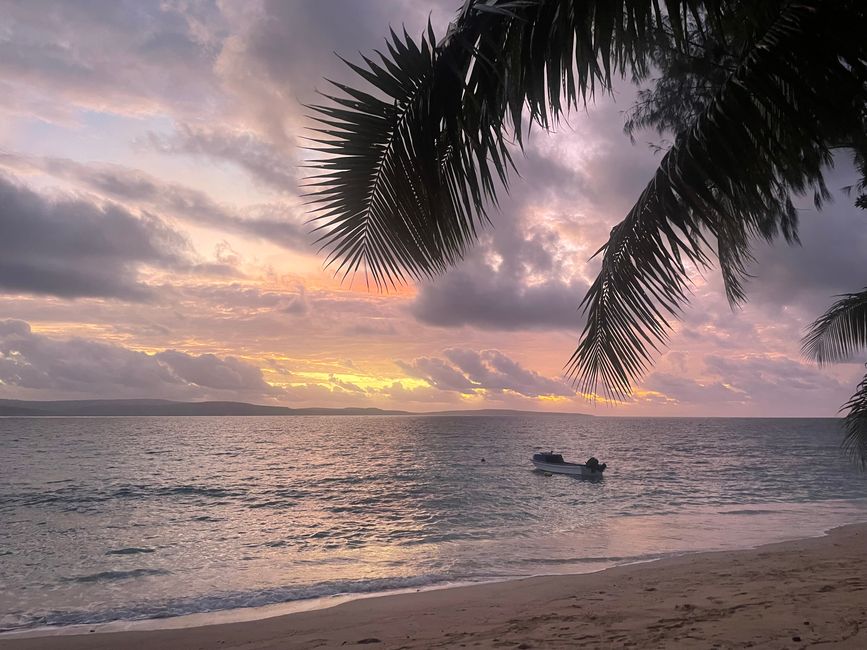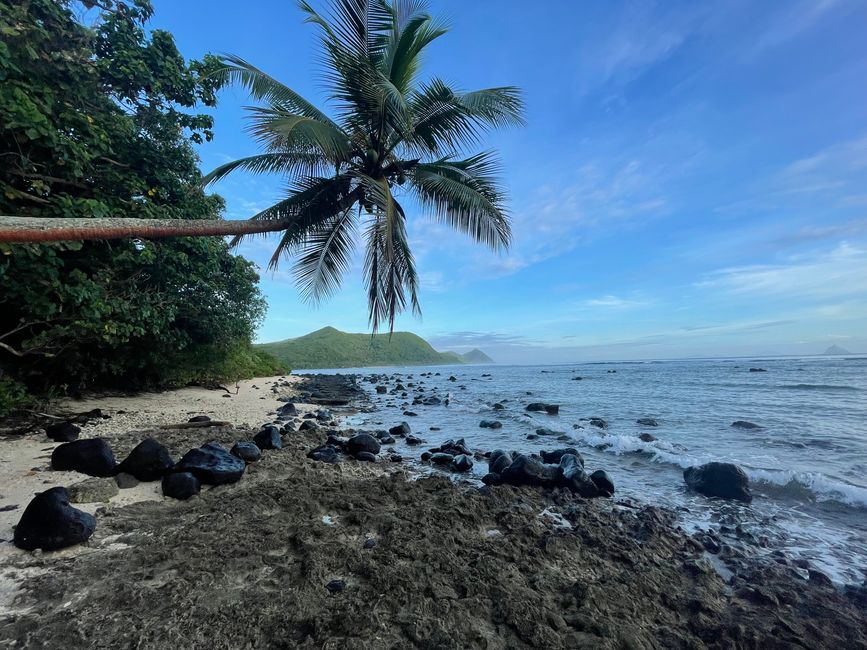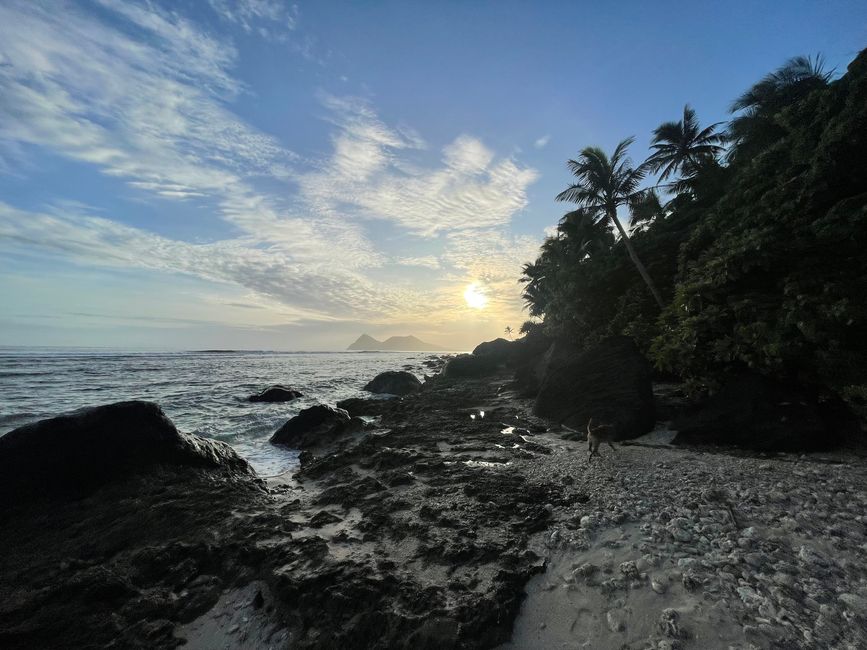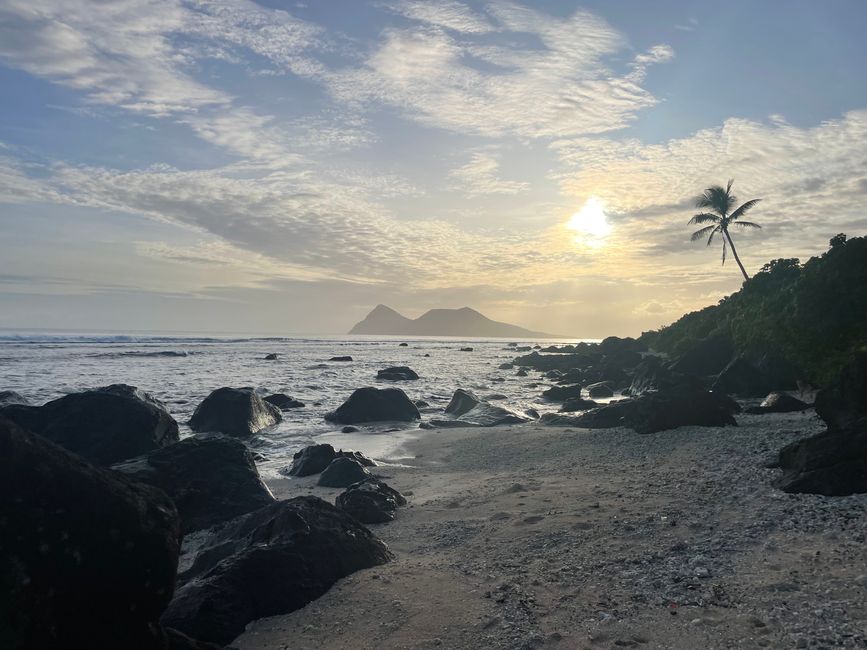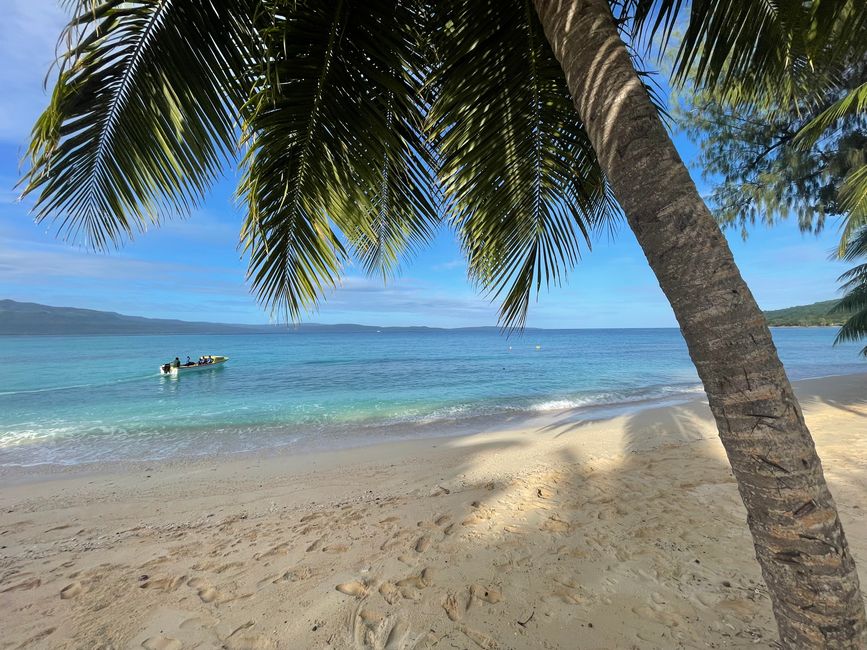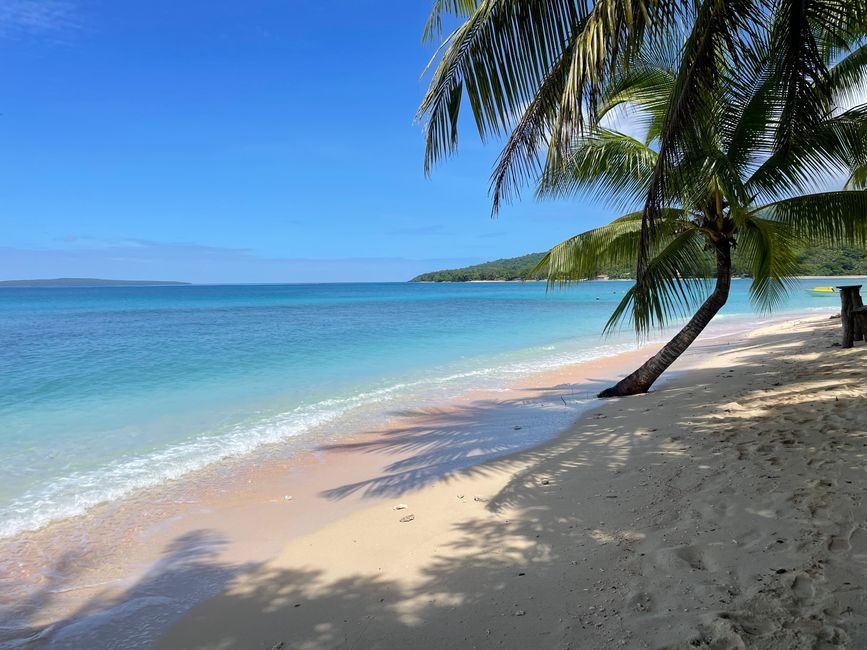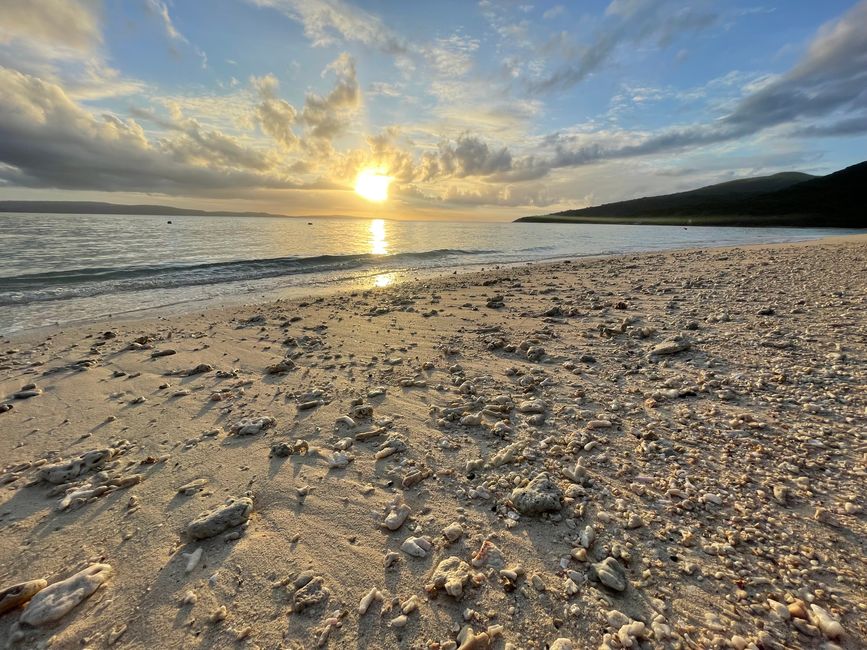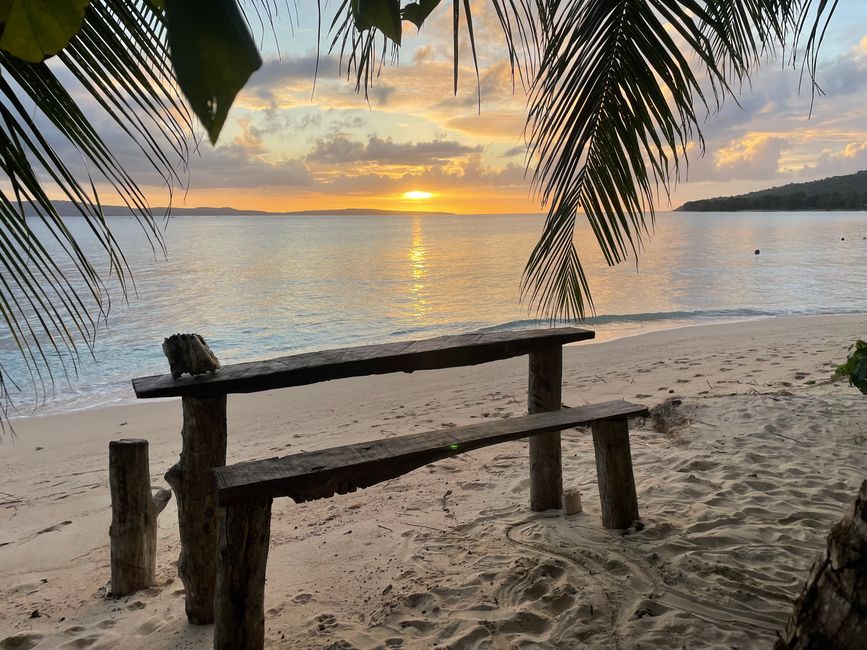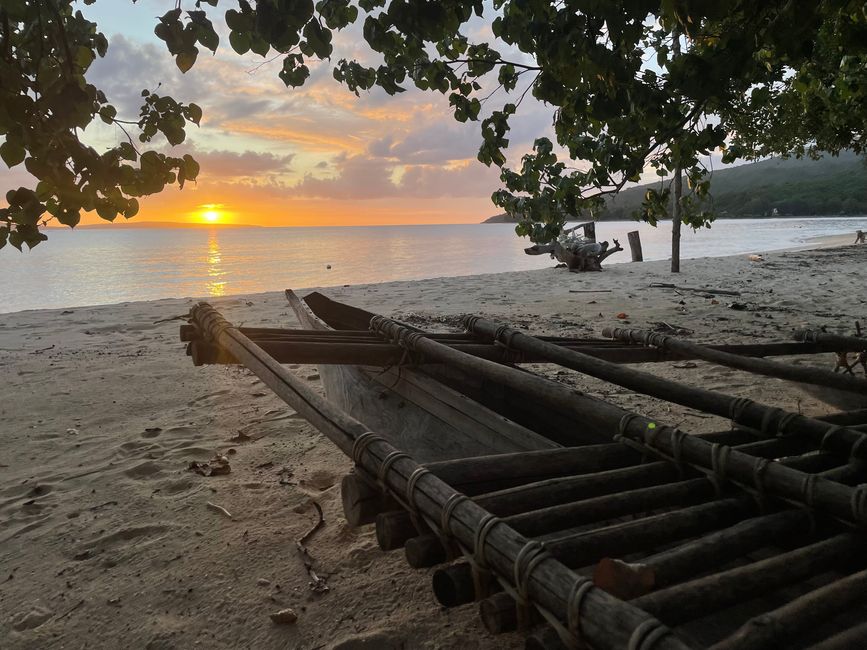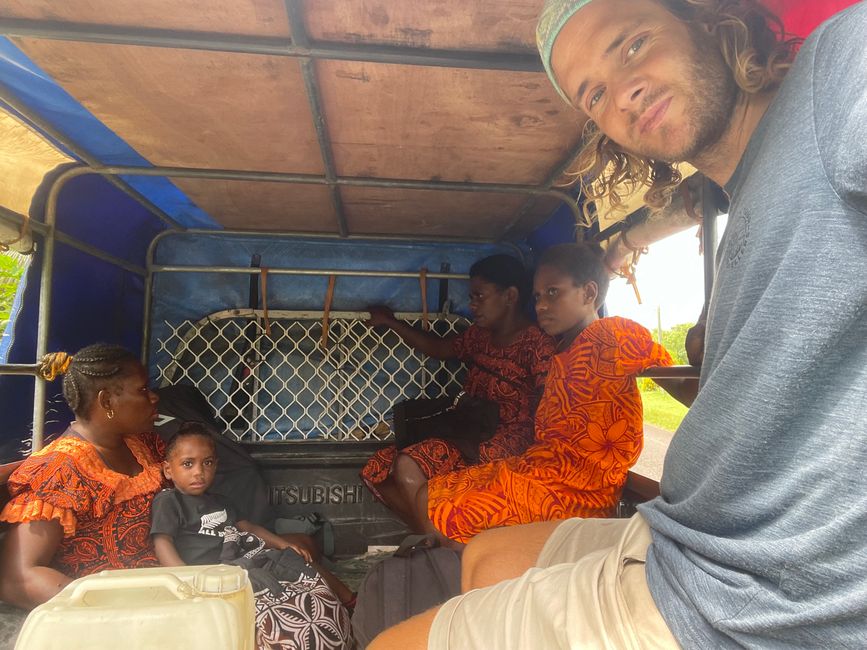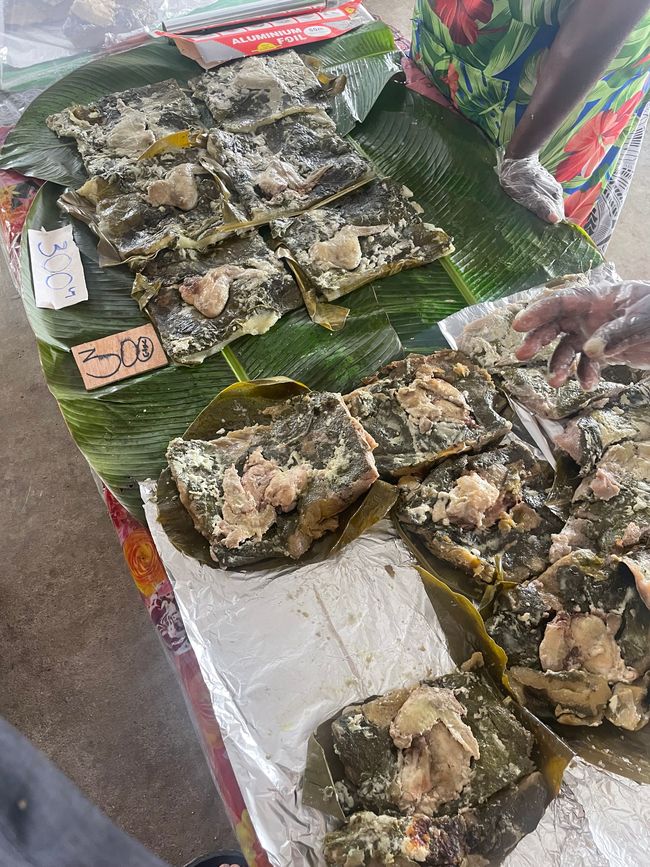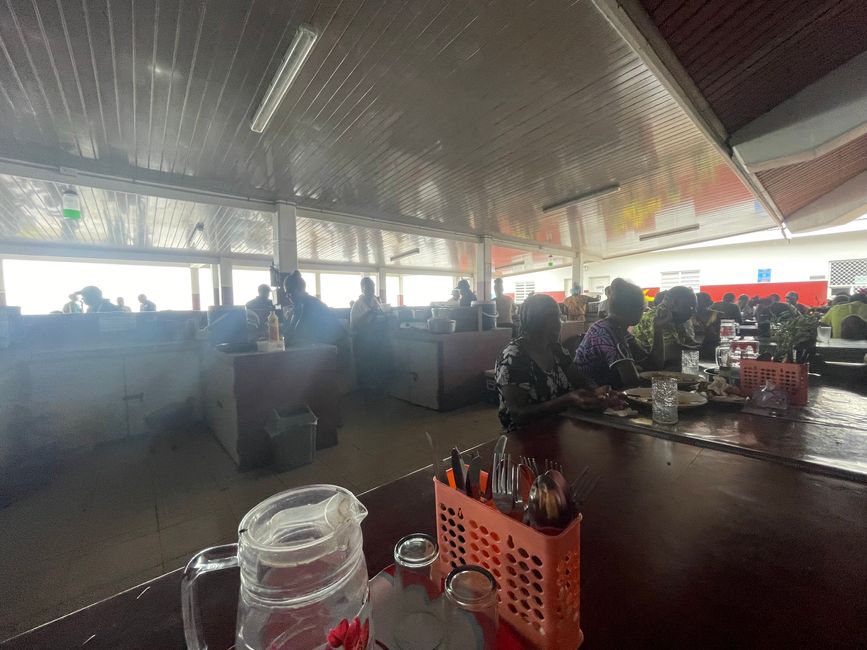2nd week in Vanuatu
Publicados: 07.03.2023
Assine o boletim informativo
Then I said goodbye to Romash, who wanted to spend another week in Fiji before meeting up with his girlfriend in Japan. I contacted Carlos, the Portuguese guy from the BBQ, who offered me a special Port Vila tour. Carlos has been living in Indonesia, Solomon Islands, Papua New Guinea, and Efate Island in Vanuatu for the past 8 years. He speaks 5 languages: Portuguese, English, French, Bislama, and the local language in Papua New Guinea. He is a hobby musician and plays the accordion and harmonica in different bands. Although he is considered one of the wealthier people here, he is not trapped in the bubble of the wealthy like many other Western residents. He maintains a very good relationship with a very poor community and is considered a mediator between the rich and the poor. He has worked for the governments of the countries he has lived in and currently works as a finance manager for the police in Port Vila, where he experiences corruption stories firsthand. However, his work is now only a means to an end, as his true passion is the love for nature. He was influenced early on by the father of a good friend who fought against the use of pesticides in Portugal and was initially considered a crazy person. But Carlos eventually realized that his ideas and beliefs were true. His admiration for this brave man grew, and he was so touched by the moment when he realized how right this man was with his claims, that he still has a fire burning inside him. A fire that burns for nature and against its exploitation. He used to live in Port Vila directly on a lagoon that was polluted with plastic waste and various toxins. Before work in the morning, he always took a short canoe ride and soon took it upon himself to collect some plastic waste. However, he was fighting a losing battle, and his efforts were in vain due to the low environmental awareness of the local people. So he began to interact more and more with the local people. First, he interviewed the fishermen, who all complained about a significant decrease in fish stocks and even fish deaths in the lagoon. He also went to a poor community on the other side of the lagoon and inquired about their observations. They also reported that the water in the lagoon had turned from turquoise blue to green in recent years due to the construction of new resorts and the abundance of plastic waste. So he made pollution more and more of a topic, created awareness in the minds of the locals, presented solutions, and had the first supporters and helpers for his plans. But the support was still not enough and the progress was minimal. So he went to the chief of the community and asked him to recruit the teenagers, who had nothing to do and were labeled as a marijuana gang, to fight against pollution. But the chief and other men from the community were highly pessimistic and considered this idea impossible, refusing to have a conversation. Carlos was disappointed and slightly angry, so he took matters into his own hands and sought contact with the marijuana gang. He spent a few evenings with them, drinking beer, kava, and smoking the occasional joint, and started talking to them about the lagoon. And it didn't take long for their awareness to grow and their desire to help was born. And through the snowball effect, where each person passed on the information, the number of helpers grew. Now the impact was so significant that together they managed to clean up the lagoon and other small rivers from pollution. But the stone he set in motion was only the beginning of a long fight. He started actions to replant the banks with mangroves, small plastic bottle recycling projects where they are used for garden boundaries or flower containers. He is currently in contact with a news anchor in Vanuatu who regularly reports on progress, results, and problems on the country's only TV channel. Trash collection campaigns are spread via radio, and he organized an action day with over 2000 volunteers in the capital. He temporarily halted production at the local plastic bottle factory, plastic bags have been banned in Vanuatu since 2018, and construction projects by companies near the lagoon are not allowed. So the water is now largely free from plastic bottles, but the quality is still not at the level it was 15 years ago. The government is increasingly involved now, and he has close communication with them and is pushing for more action through news broadcasts. Furthermore, a French minister visited and was explained and shown the little green revolution, and decided to finance a small "green" education center for the community.
A few years ago, Carlos decided to sell his car and only ride a bicycle, which is very unusual in Vanuatu. So another project is to convince others of the benefits of cycling. He has now founded the first bicycle club in Vanuatu and received funds from the government, which he used to provide bicycles for children in the community. Currently, he is planning a bike path along the waterfront in downtown and applying for government funds. And the chances are good. Vanuatu receives a lot of money from Western countries as victims of the climate crisis, which, in addition to lining the pockets of corrupt politicians, is also invested in projects if there are any. But it's somewhat surreal that the culprits responsible for climate-induced changes and damage to other countries and people have been identified, but only have to pay a kind of indulgence. And the indulgence is so minimal that it is worthwhile to continue harming the environment and people. It's like robbing a bank, stealing 1 million euros, getting caught, and then only having to pay 1000 euros as a punishment. I don't know the exact proportion in this whole story, but in this matter, it is not only about material, but also about human and environmental damage.
Well, when I visited Carlos, he took me to the community where an event was organized with a BMX champion from Western Australia on that day. Such projects are intended to raise children's awareness, increase motivation for engagement, and make cycling more appealing. I was definitely thrilled by the idea, and if I didn't have so many years on me, I might have bought a BMX bike myself. He took me through the lagoon, introduced me to different people, including a 12-year-old girl who reminded him of Greta Thunberg with her ideas and activism, and Carlos already calls her the future prime minister. He showed me the lagoon from the community's perspective, and a little boy showed me how to plant mangroves and proudly showed me the ones they planted 3 years ago, which had now rooted and grown over a meter tall. Then he showed me the place where he sat with the marijuana gang, the place where the small education center will be built, and he took me to a landfill where all the island's garbage is simply dumped in nature. And we kept meeting people who were involved in projects and whom he knew.
To me, he is the Che Guevara of Vanuatu, fighting for a green revolution. His gift is mainly to connect people and motivate them for something good. His diplomatic and non-judgmental nature and the form of communication that activates independent thinking seem to be very helpful qualities. The less complex structures and shorter bureaucratic and communication channels here in Vanuatu are possibly also advantageous. Above all, it is certainly having the same goal in mind and the power and will of the community, the masses, that have paved and continue to pave this straight path. It is only thanks to the chiefs of the different communities, who also have political power, the reporters, other volunteer helpers, and above all, the young people and children, that something is happening here and that the relatively late but very powerful impact of turbo capitalism and the associated pollution is being mitigated or even countered. And it is a prime example of changing things from the bottom up, rather than the usual top-down approach. And that's where I want to join the previous text's hymn to the community and I am convinced that by having common goals and projects, a community can be formed and in turn contribute to the well-being of all involved. Many of the previously written-off and hopeless young people in the marijuana gang are now working on farms in Australia, saving up a small amount to build a life in Vanuatu. (New Zealand and Australia are apparently a place for many people from the Pacific Islands to save money and then build their own lives in Vanuatu with it.) But I think the experience of being able to make a difference and achieve something through their own efforts has created a sense of self-efficacy and self-confidence in the boys and empowered them to follow their own path. And Carlos' hope is that after their return, in addition to their private goals, they will continue to spread the green idea and ride the green wave.
I have heard from different people that climate change could be one of the greatest opportunities to bring people around the world closer together and it could be seen as a major human project. The only thing we would have to agree on is the right path. I think this will probably involve more sacrifices, which often feel like loss and setback. But if everyone practices restraint for the preservation of our planet, it might feel like a good feeling and less associated with loss. This could then change our thinking processes and consequently our behavior, so that it is no longer cool to have a big house, car, or travel extensively, but rather to live modestly and be satisfied with the people in your village or neighborhood. So taking a step back could become progress.
In the evening, a friend and her son visited Carlos, who was looking for emotional support. Alongside his green activism, Carlos is also a father and brother figure to the people living here. Truly an inspiring person. But like every person, his life has its ups and downs alongside the positive aspects. His wife and two daughters live in Australia, and I know that his older daughter is not doing well mentally. But Carlos spoke less about his family and kept that part more to himself. It will all have its reasons, but I think Carlos' activism is also a form of individualism and comes with sacrifices.
Anyway, I had to stay one more night in Port Vila because a cyclone that hit New Zealand harder brushed Vanuatu. It rained and stormed a lot, and I couldn't reach my next destination, Pele Island, which is only a few minutes away from Efate by boat. The strength of these cyclones has been increasing in recent years due to climate change, for example, a cyclone hit Efate in 2018, sweeping over Port Vila with wind speeds of over 300 km/h and destroying 90% of it. Carlos' band wrote a song about these storms: https://www.youtube.com/watch?v=5_GMcrZD8_A
A day later, I made my way. Instead of taking the bus offered by the tourist office for the equivalent of 50 euros, I took a public bus for 4 euros to a harbor in the north of the island and then hitched a ride on a boat with a resident of the neighboring island who dropped me off at Pele with Magret and John. The place was fantastic, and for a change, the weather was sunny. So I spent 2 nights on this island and explored the reef snorkeling and the island's coastline on foot. Unfortunately, I had to leave one day earlier due to the forecast of rain and wind, and it wouldn't have been possible to transport me to the main island by boat the following day. So I spent one more night in a hostel in Port Vila and had the opportunity to meet Hans, a Belgian guy. He used to be a manager for a big brewery and decided to quit his job due to too much stress and lived in India for several years, becoming a yoga teacher. Today he lives in Bulgaria, where he teaches yoga, and during the winter months, when he would have to pay up to 25 euros a day for his pellet heating system, he travels the world. I invested my last Vanuatu money in food at the local vegetable, fruit, and food market, and then with a stuffed belly, I got on the plane to Fiji in the evening.
Assine o boletim informativo
Responder
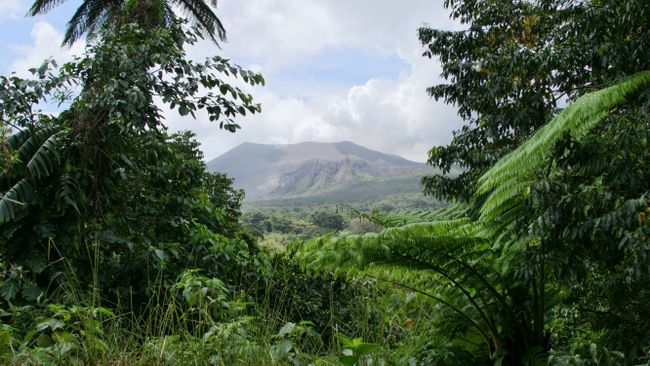
Relatórios de viagem Vanuatu
